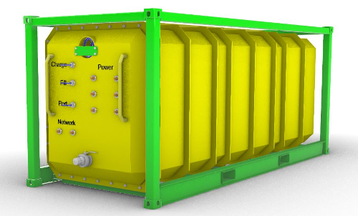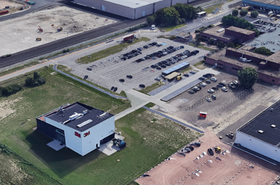A previously unknown startup has proposed underwater data centers - but wants to place them 3,000m (10,000 feet) below sea level, claiming this will make them more secure.
Existing underwater data center projects, including China's Highlander and Microsoft's Natick, have used gas-filled vessels in shallow coastal waters, at depths of around 120m (400ft). Subsea Cloud claims it will go way beyond that, and says it has pressure-tested liquid-cooled underwater data center pods (UDCPs), to prove they can operate lights-out on the sea bed, at depths of 3,000m.
We hailed the firm and got a little more information than the company's site, which founder and CEO Maxie Reynolds describes as a "place-holder."
Deep cover
Subsea's reason for sinking pods that deep is security, says Reynolds, a marine engineer and computer scientist who "transited" (her word) through ethical hacking, testing the physical security of data centers, before returning to marine engineering to build really secure data centers she plans to sink to the ocean bed.
Reynolds is keeping quiet about the details of the systems, but in emails to DCD she said the pods, which hold around 800 servers, have a design that is "far more simple and proven than [Microsoft's]."
The company has facilities in Houston, Texas, and off the coast of Port Angeles, Washington, and has built a prototype that has been tested - although we haven't had details or proof of the testing yet.
The team is currently small, with four subsea engineers, including Oddgeir Ingvartsen, who has founded an offshore technology company, Energy Subsea. It has interest from other countries, says Reynolds: "We are partners of Chevron, Laborde Marine, and Oracle."
Truly deep-sea data centers can't be accessed, she told the InScope podcast: "You can’t do it with divers. You’re going to need some very disruptive equipment. You can’t do it with a submarine, they don’t go deep enough. So you’re gonna need a remote operated vehicle (ROV) and those are very trackable. It takes care of a lot of the physical side of security, and what I’m finding is that a lot of military industries want to use these for their physical security."
Subsea's press release says the data centers will be aimed at healthcare, finance, and the military, and will use no water or electrical cooling.
The company aims to be certified by Gold Standard, a carbon offset program, and claims that ten pods will offset more than 7,683 tons of CO2 compared to an equivalent land-based center.




